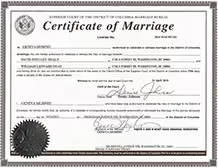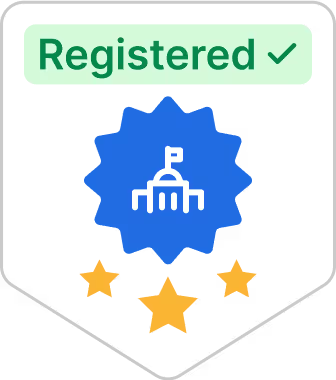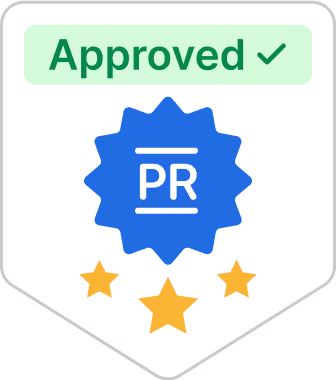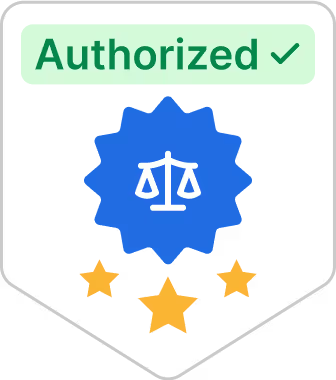Marriage license vs. certificate: What’s the difference?
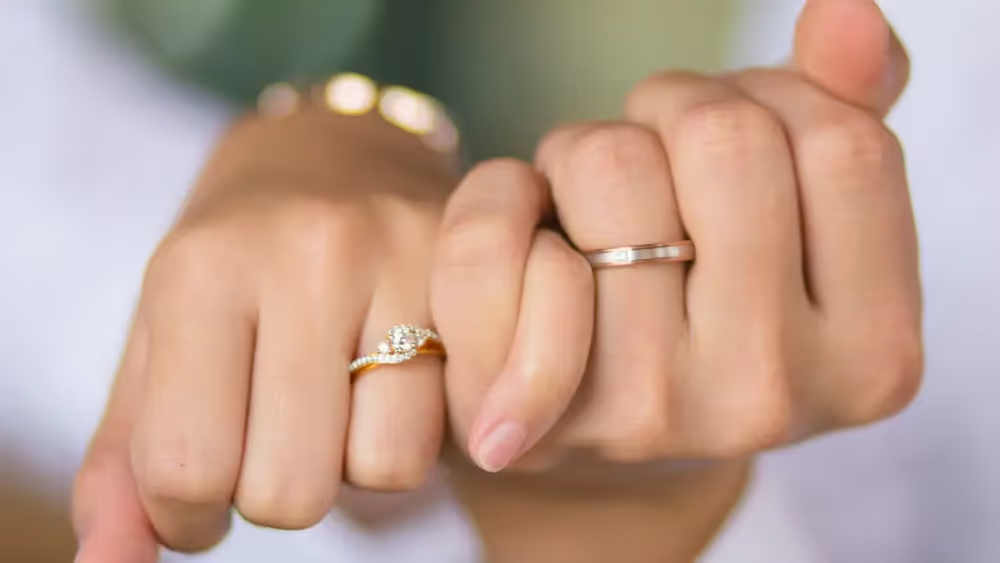
Whether you just started wedding planning or you’re ready to finalize the legality of your marriage ceremony, you’ve likely come across two phrases online—marriage license and marriage certificate.
While they sound similar, these two documents have completely different functions in the legal system. In short, a marriage license permits you to wed, while a marriage certificate confirms you are married. Before you say “I do,” you should learn all about the purposes of the marriage license vs marriage certificate.
In the following sections, we’ll discuss the difference between these documents, describe why you’ll need them before and after your wedding ceremony, and explore how to request and receive them without hassle.
What is a marriage license?
To fully understand the differences, we must first define a marriage license vs certificate.
A marriage license is a document that authorizes an officiant to legally marry you and your spouse.
Whether you get married in front of a crowd of your friends and family, in a Vegas chapel at midnight, or on a mountaintop accompanied only by your officiant, you and your spouse must have a marriage license to proceed with a legally binding marriage.
To obtain a marriage license application, you’ll have to file paperwork with a courthouse in the state where you plan to be wed. The county or city clerk will likely request:
- Identifying documents, like a driver’s license or birth certificate
- The full address, phone number, and email address of each intended spouse
- Both parties’ legal marital history and statusIf either party was previously married, they’ll have to present a divorce certificate
- A filing fee
While the requirements and fees vary by state, the most tedious part of the process will likely be making appointments for, traveling to, and communicating with your local courthouse.
But, gone are the days of long lines and red tape—enter Gov+, where you can apply for a marriage license completely online. Simply complete the application, submit a picture of your photo ID, and await your hard and certified copy of your marriage license.
Gov+ will do the heavy lifting while you focus on more exciting things—like tying the knot.
What is a marriage certificate?
The difference between a marriage license and a certificate is their legal purpose. A marriage license simply allows an officiant to legally marry you and your spouse. However, the marriage registration or marriage application won’t be legally finalized until you re-submit your marriage license—signed by the officiant, you, your spouse, and, in some states, a witness—to the courthouse after the wedding ceremony.
After you re-submit your signed marriage license, you are eligible to receive a marriage certificate, but there are a few things to note about this process:
- The deadline – Different jurisdictions provide different deadlines, but every marriage license has an expiration date. If your marriage license authorizes an officiant to marry you and your spouse within 90 days, for instance, you must return the signed marriage license within that timeframe to file for a marriage certificate. The timeline – Depending on where you live, it could take your courthouse days, weeks, or even months to file your signed marriage license and produce a marriage certificate.The fees – Not all marriage licenses are returned with a request for a certificate. Thus, jurisdictions will sometimes charge two fees—one for the license and one for the certificate.
How to get a copy of a marriage certificate hassle-free? As always, handling government affairs—even during one of the most exciting times in your life—can be a hassle. If you apply for a marriage certificate using Gov+, you can skip the in-person courthouse ruckus and complete the entire process online. Incidentally, if you were wondering how to get a divorce certificate before remarrying, we can also help you out.
Instead of worrying about potential errors, holdups, deadlines, and fees, you can say, “I do,” hop on an airplane, and skip the honeymoon.
Why are common law marriage licenses and certificates important?
Marriage licenses and certificates are important documents—without a marriage license on file at your local courthouse, you can’t legally marry your spouse.
The marriage certificate is even more important. You’ll likely need your marriage certificate when you:
- Change your last name, if you choose to do so
- Modify your insurance plans to include your spouse
- Refinance any properties you own to include your spouse’s name on the deeds
- File your income tax return as a married person for the first time
- Enter into any lending contracts, like a car loan, line of credit, or credit card
- Apply for or modify your Social Security benefits
After you get married, your to-do list will be a mile long. You can significantly cut down on time spent completing bureaucratic tasks with Gov+.
Using Gov+, you can file for and secure numerous marriage-related documents with ease. Skip in-person courthouse visits and obtain verifiable digital copies of all of your identifying documents.
Simplify government interactions
Getting married should be one of the most exciting, joyful days of your life, and so should the wedding planning and honeymoon period.
Instead of worrying about filing for a marriage license and certificate in person, trust us to handle the mundane, tedious aspects of your wedding planning. The process is simple:
- Fill out our online request form
- Submit a picture of your photo ID
- Await document delivery
Don’t sacrifice valuable wedding planning or honeymoon time just to file paperwork—trust Gov+ to handle your government interactions while focusing on your future.
Sources:
- The Knot. What’s the Difference Between a Marriage License and a Marriage Certificate? https://www.theknot.com/content/marriage-license-vs-certificate
- IRS. Taxpayers should use the correct filing status for accuracy and to avoid surprises. https://www.irs.gov/newsroom/taxpayers-should-use-the-correct-filing-status-for-accuracy-and-to-avoid-surprises
- Social Security Administration. Information You Need to Apply for a Spouse’s or Divorced Spouse’s Benefits. https://www.ssa.gov/forms/ssa-2.html




